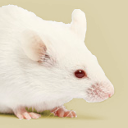| MGP_AKRJ_T0034342.1 | - | 6226 | 1066aa | MGP_AKRJ_P0034342 | Gene/transcipt that contains an open reading frame (ORF).Protein coding | | - | A single transcript chosen for a gene which is the most conserved, most highly expressed, has the longest coding sequence and is represented in other key resources, such as NCBI and UniProt. This is defined in detail on http://www.ensembl.org/info/genome/genebuild/canonical.htmlEnsembl Canonical, |
| MGP_AKRJ_T0034337.1 | - | 6311 | 1064aa | MGP_AKRJ_P0034337 | Gene/transcipt that contains an open reading frame (ORF).Protein coding | | - | - |
| MGP_AKRJ_T0034334.1 | - | 5874 | 985aa | MGP_AKRJ_P0034334 | Gene/transcipt that contains an open reading frame (ORF).Protein coding | CCDS25802, CCDS49025, CCDS49026, CCDS79105 | E9PW51 E9Q0P1 E9Q4Q6
E9Q765 F6YD01 F7A034
Q3TQ29 Q3UR91 Q80U58
| - |
| MGP_AKRJ_T0034335.1 | - | 4984 | 1064aa | MGP_AKRJ_P0034335 | Gene/transcipt that contains an open reading frame (ORF).Protein coding | | - | - |
| MGP_AKRJ_T0034336.1 | - | 3587 | 980aa | MGP_AKRJ_P0034336 | Gene/transcipt that contains an open reading frame (ORF).Protein coding | | - | - |
| MGP_AKRJ_T0034340.1 | - | 3560 | 1066aa | MGP_AKRJ_P0034340 | Gene/transcipt that contains an open reading frame (ORF).Protein coding | | - | - |
| MGP_AKRJ_T0034341.1 | - | 3295 | 985aa | MGP_AKRJ_P0034341 | Gene/transcipt that contains an open reading frame (ORF).Protein coding | | - | - |
| MGP_AKRJ_T0034343.1 | - | 902 | 262aa | MGP_AKRJ_P0034343 | Gene/transcipt that contains an open reading frame (ORF).Protein coding | | - | - |
| MGP_AKRJ_T0034348.1 | - | 706 | 234aa | MGP_AKRJ_P0034348 | Gene/transcipt that contains an open reading frame (ORF).Protein coding | | - | - |
| MGP_AKRJ_T0034349.1 | - | 665 | 221aa | MGP_AKRJ_P0034349 | Gene/transcipt that contains an open reading frame (ORF).Protein coding | | - | - |
| MGP_AKRJ_T0034344.1 | - | 648 | 185aa | MGP_AKRJ_P0034344 | Gene/transcipt that contains an open reading frame (ORF).Protein coding | | - | - |
| MGP_AKRJ_T0034345.1 | - | 472 | 109aa | MGP_AKRJ_P0034345 | Gene/transcipt that contains an open reading frame (ORF).Protein coding | | - | - |
| MGP_AKRJ_T0034339.1 | - | 6218 | 35aa | MGP_AKRJ_P0034339 | | | - | - |
| MGP_AKRJ_T0034347.1 | - | 994 | 35aa | MGP_AKRJ_P0034347 | | | - | - |
| MGP_AKRJ_T0034338.1 | - | 518 | No protein | - | Gene/transcript that doesn't contain an open reading frame (ORF).Processed transcript | | - | - |
| MGP_AKRJ_T0034350.1 | - | 612 | No protein | - | An alternatively spliced transcript believed to contain intronic sequence relative to other, coding, transcripts of the same gene.Retained intron | | - | - |
| MGP_AKRJ_T0034346.1 | - | 6380 | 1008aa | MGP_AKRJ_P0034346 | | | - | - |

